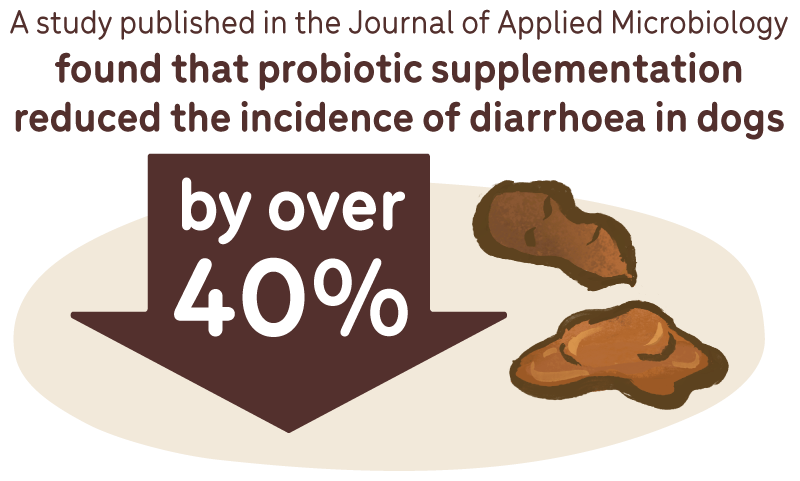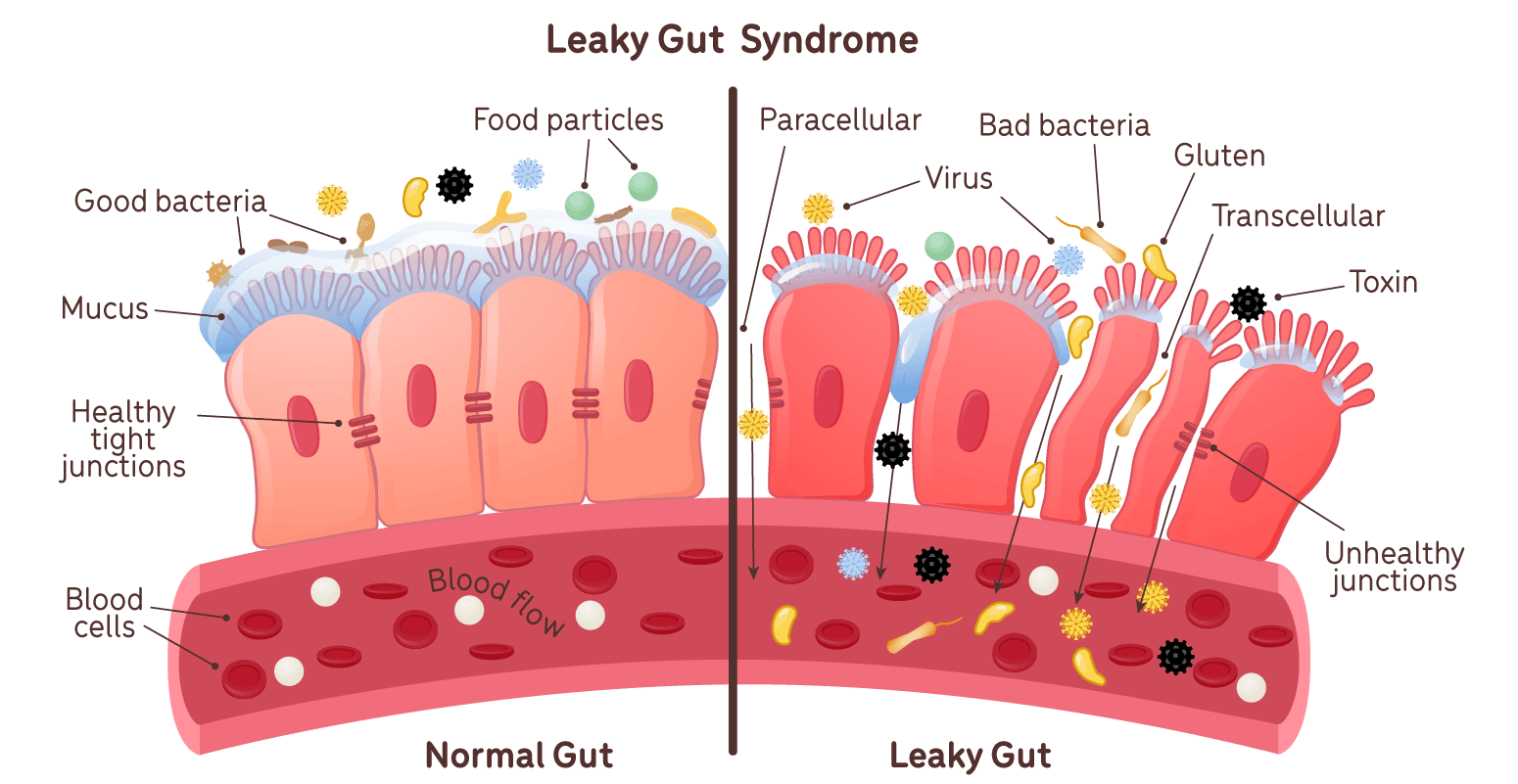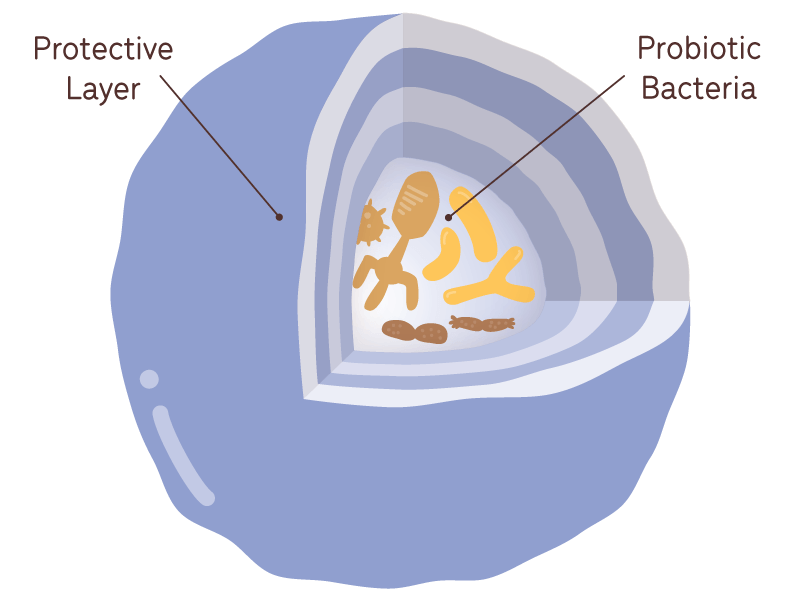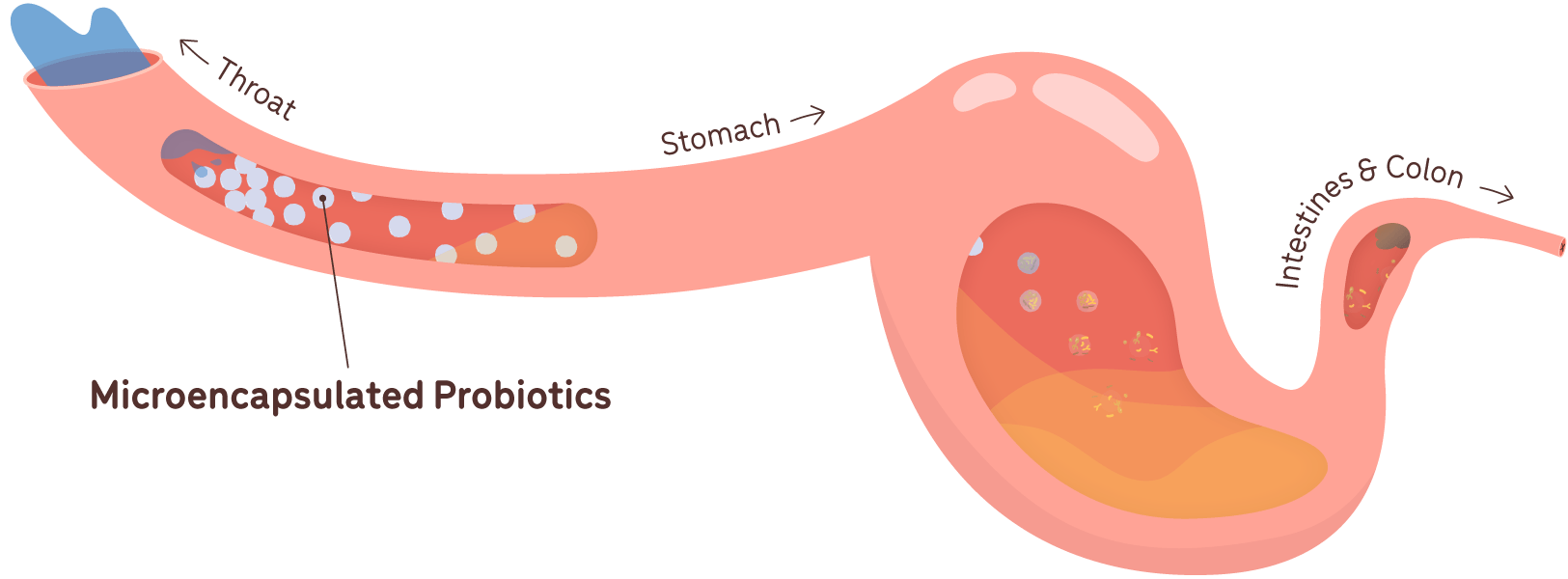Microencapsulation: A Game Changer for Probiotics in Dog Health

Feeding our pets like family has become increasingly popular. Pet parents are making sure that their fur baby is getting the healthiest, most natural and nutritional diet, sometimes feeding them better than themselves!

With the rise of a more holistic approach to pet care, adding extra supplementation to a dog’s diet is gaining popularity. These supplements can range from omega 3s, turmeric, raw eggs and lots more, you can read more about it here (2). But the supplements that are most popular within pet care, are probiotics for dogs! (1).
Why should I give my dog probiotics?
Did you know that the large number of good bacteria in the gut play a critical role in health and diseases among our pets. If assisted with beneficial and appropriate probiotics it can help maintain the balance of the gut microbiome and play a crucial role in our dog’s overall health (6).

Numerous studies have demonstrated the positive impact of probiotics on dogs' immune systems and general well-being. For instance, a study published in the Journal of Applied Microbiology found that probiotic supplementation reduced the incidence of diarrhoea in dogs by over 40% (4). Another study conducted by Veterinary Microbiology revealed that supplementing dogs with probiotics resulted in an enhanced immune response to vaccinations (5).
Gut health is so important because the gut biome (the bacterial population in the gut) is so delicate and can impact everything, some of the numerous benefits of probiotics for dogs include:
- Improved digestion and regular bowel movements
- Strengthened immune system (especially after using antibiotics)
- Fighting off harmful bacteria
- Better nutrient absorption and breaking down food
- Reduce instances of gas, bloating, and bad breath associated with poor digestion
- Improved skin and coat health to allergies
- Improved behaviour and energy/good mood levels
- Proper absorption of nutrients
- To support a change in diet (transitioning from one diet to another to reduce the chance of side-effects like vomiting or diarrhoea).
- Dogs with stress or anxiety
- Improve a leaky gut

As you can see above, there are many benefits of a probiotic to your dog's health. Adding in prebiotics and probiotics can make a big difference to the overall wellbeing of your dog. Read more from Narelle Cooke, a canine nutritionist, on The Health Benefits of Probiotics for Dogs.
What is Microencapsulation and why should probiotics have it?

While probiotics have numerous benefits, these live microorganisms are delicate and can be easily destroyed by exposure to heat, moisture, and stomach acids. This is where microencapsulation comes to play.
What is microencapsulation? Micro-encapsulation is a process that encapsulates the probiotic bacteria within a protective layer, shielding them from harm until they reach their target destination within the gut, otherwise, without it, the probiotic would be useless (3).
This technology significantly enhances the effectiveness of probiotics in your dog's diet by:
- Protecting the probiotics from environmental factors (heat, moisture, stomach acids) allowing them to reach the digestive system intact
- Prolonging shelf life and maintaining potency of the probiotics
- Ensuring a controlled release of the bacteria within the gut for sustained benefits

Not sure if your probiotic is microencapsulated? WELL, we have a simple solution to check! Place your probiotic powder or tablet in a bowl of water, and if it floats, its microencapsulated, but if it sinks... uh oh, well you know what that means.
If you want to know more on what to look out for when buying a probiotic for your dog or which is the best probiotic for your dog, you can read further here.
How to use the Big Dog Probiotic?
Now that you’ve got your Big Dog Probiotic, all you need to do is sprinkle the appropriate dose over your dog's food! We recommend adding probiotics to your dog’s meal every day. The recommended dose is ½ teaspoon for small dogs, ¾ teaspoon for medium dogs and one teaspoon for large dogs. You can also give it to cats at the small dog dose.

Preferably feeding the probiotic with a raw dog food diet is best for optimal results. But if your dog is currently on a dry food, we recommend mixing the probiotics with a small amount of yogurt or coconut oil to make it into a paste that sticks to dry food.
We hope your pup enjoys the health benefits of probiotics!
